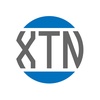In the rapidly changing landscape of healthcare, the evolution of patient expectations is a central theme driving innovation and transformation. As individuals become more informed and engaged in their health and wellness journeys, the demand for personalized health plans is on the rise. This shift is not just a trend but a fundamental change in the way healthcare is perceived, delivered, and experienced.
The New Era of Informed Patients
The digital age has ushered in a new era of healthcare, one where information is at the fingertips of every patient. The internet, wearable technology, and health apps provide a wealth of information, enabling patients to monitor their health, track progress, and make informed decisions about their care. This accessibility to information has led to higher expectations; patients now seek more than just treatment—they demand a holistic, tailored approach to healthcare.
Empowered Decision-Making
With the wealth of information available, patients are no longer passive recipients of healthcare services. They are empowered to take an active role in their care, from choosing providers to making treatment decisions. This empowerment demands a healthcare system that not only acknowledges patient autonomy but also actively supports it through shared decision-making processes.
Personalized Health Plans: The Response to Changing Expectations
In response to these evolving expectations, personalized health plans have emerged as a key solution. These plans go beyond the one-size-fits-all approach, taking into account individual patient needs, preferences, and genetic makeup.
Tailored Treatments and Preventive Care
Personalized health plans leverage data and technology to tailor treatments and preventive measures to the individual. By considering factors such as genetic predispositions, lifestyle, and environment, healthcare providers can offer more effective and efficient care. This not only improves patient outcomes but also enhances patient satisfaction.
The Role of Technology
Technology plays a pivotal role in the development and implementation of personalized health plans. Electronic health records (EHRs), artificial intelligence (AI), and machine learning are among the tools that enable the customization of healthcare. These technologies can analyze vast amounts of data to identify patterns, predict health risks, and recommend personalized interventions.
The Benefits of Personalized Health Plans
Personalized health plans offer numerous benefits, both for patients and the healthcare system at large.
Improved Patient Outcomes
By focusing on the individual's unique health profile, personalized plans can lead to better health outcomes. Treatments are more likely to be effective when they are tailored to the specific characteristics of the patient, reducing the trial and error often associated with standard treatment protocols.
Increased Patient Engagement
When patients are involved in the creation of their health plans, they are more likely to be engaged in their care. This engagement is crucial for the success of any treatment plan, as it encourages adherence to prescribed therapies and lifestyle changes.
Cost-Effectiveness
Although personalized health plans may involve upfront costs, particularly for genetic testing and data analysis, they can be more cost-effective in the long run. By preventing disease and reducing the need for trial-and-error treatments, these plans can lower overall healthcare costs.
Challenges and Considerations
Despite the benefits, the implementation of personalized health plans is not without challenges.
Data Privacy and Security
The reliance on personal data raises concerns about privacy and security. Ensuring that patient information is protected is paramount to maintaining trust in the healthcare system.
Accessibility and Equity
There is also the issue of accessibility. Personalized health plans, particularly those that involve advanced technology and genetic testing, can be expensive. Ensuring that these innovative care options are available to all, regardless of socioeconomic status, is a challenge that must be addressed.
Healthcare Provider Training
As healthcare becomes more personalized, providers must adapt. This includes training in new technologies, data analysis, and the integration of genetic information into care plans. Ensuring that healthcare professionals are equipped to deliver personalized care is essential for the success of this approach.
Conclusion
In the realm of healthcare technology, Holon Solutions stands out as a beacon of innovation, seamlessly blending advanced technological solutions with a deep-rooted commitment to enhancing the human element in healthcare. Drawing inspiration from the concept of a "holon," which symbolizes an entity that is both independent and an integral part of a larger system, Holon embodies the spirit of unity and interconnectedness. This foundational philosophy propels Holon's mission to foster stronger human connections within the healthcare sector through the strategic application of cutting-edge technology.
At the core of Holon's distinctive approach is a sophisticated platform that transcends the limitations of conventional healthcare technology offerings. By crafting a user-friendly space that simplifies complex processes, Holon equips healthcare professionals with tailored tools designed to streamline their workflows. The use of proprietary sensor technology to aggregate and integrate patient data from a myriad of sources into customized clinical workflows is a testament to Holon's ingenuity. This meticulous integration not only saves valuable time for medical professionals but also addresses the pervasive issue of professional burnout, paving the way for a renewed emphasis on delivering exceptional patient care.
What sets Holon apart in a competitive landscape is its unwavering commitment to alleviating the burdensome administrative tasks that often overshadow the healthcare profession. By harnessing smart technology and intuitive design, Holon introduces an array of customized tools, services, and insights that aim to strike a balance between achieving tangible business outcomes and enhancing the quality of human interactions and healthcare results.
A pivotal element of Holon's strategy is the establishment of the Holon Community, a dynamic ecosystem designed to optimize healthcare processes. This initiative ensures the efficient delivery of patient data from various sources directly to the point of care, seamlessly integrating with existing healthcare infrastructures and protocols. Such an approach not only maximizes professional satisfaction but also allocates more time for patient-centered care, ultimately elevating the quality of healthcare services.
Innovation is deeply ingrained in Holon's culture, particularly within its Innovation Lab, where the spirit of creativity and exploration thrives. Within this collaborative space, Holon's teams are encouraged to push the boundaries of technology and design, always with a keen focus on accentuating the human aspect of healthcare. Guided by core principles such as bold innovation, simplification, customer empathy, agility in a Software as a Service (SaaS) environment, and the humanization of interactions, Holon's Innovation Lab serves as the engine for the development of groundbreaking solutions. These solutions reflect Holon's ambition to drive transformative changes within the healthcare industry.
Holon's relentless pursuit of redefining healthcare experiences encompasses a multifaceted approach that addresses professional burnout, minimizes administrative burdens, and enriches the quality of patient care. With a steadfast vision of infusing healthcare innovation with a more humane touch, Holon Solutions is not just revolutionizing healthcare technology; it is reimagining the very essence of healthcare itself, ensuring that at the heart of every technological advancement lies a profound respect for the human connections that underpin the healthcare ecosystem.


No comments yet